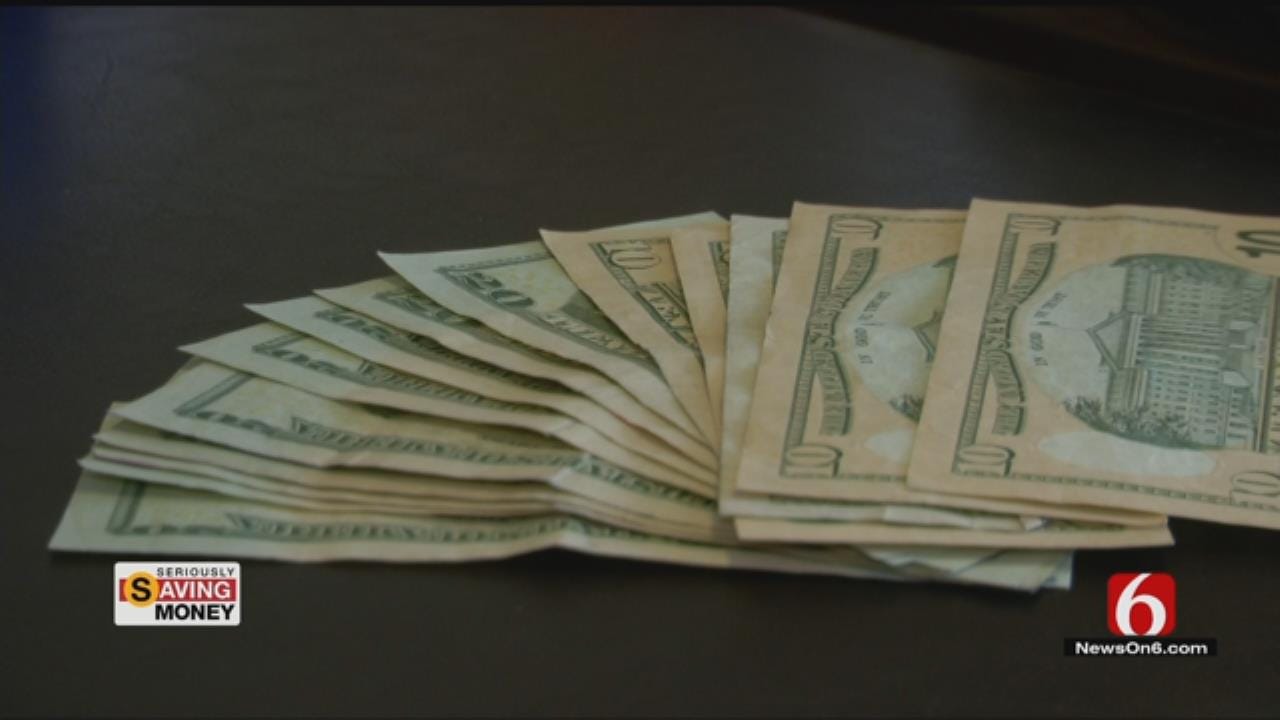Experts: Saving, Budgeting Best Ways To Start New Year Financially
<p>Federal data shows Americans are saving less than six percent of their income each year; most experts recommend 10 to 15 percent, but experts have some tips to help you save.</p>Wednesday, December 28th 2016, 10:50 pm
With more people using credit cards, it's easy to overspend, and those bills will be due soon.
We have some advice from experts to start the new year off on the right financial track. Their advice could ultimately pay off by Seriously Saving you Money.
Scott Starkey from Broken Arrow always has at least a few New Year's resolutions - one is to save more money.
"You just never know what's going to happen,” he said. “You never know if you become ill or somebody in your family needs help or things like that, so try to be conscious of it at all times."
Larry Rosebure with Christian Credit Counseling Service said the number one New Year’s financial goal for most people should be to build a budget and live on it.
"That solves 99 percent of the problems we see," Rosebure said.
But federal data shows Americans are saving less than six percent of their income each year; most experts recommend 10 to 15 percent.
So, Rosebure said a budget is critical.
"Part of it is learning to live with your own mathematical reality," he said.
But with the reality that 62 percent of Americans have less than $1,000 in savings, and 47 percent wouldn't be able to cover a $400 emergency without borrowing, where do you start?
Financial expert Chris Hogan, who is a part of radio host and author Dave Ramsey's team, said to think of budgeting and getting money under control like a football game - offense can win games, but defense wins championships.
"In your money aspect, you've got to play offense - you've got to earn money. But we've got to play defense too, by not sending it to the wrong people,” Hogan said. “We want it to stay in the house to help the family."
Once you get things under control with good defense and don't charge things to credit cards, then you can start socking at least some money away for things you know will happen - like car repairs or medical expenses, which can be budget busters.
Rosebure said, "Don't spend what you don't have. Because you do that today, and it only makes tomorrow worse."
Next, set dollar amounts each month on areas that aren't fixed costs - like eating out, and shopping.
Making it a point to put money aside has helped Starkey. He said even if it's a small amount, even one dollar a day, getting in the habit of saving is important.
"Always save a little bit for a rainy day fund and just never give up. You never know what's around the corner," he said.
Experts say, ultimately, a good rule of thumb is to have an emergency fund that can cover three to six months of expenses.
More Like This
December 28th, 2016
April 15th, 2024
April 12th, 2024
March 14th, 2024
Top Headlines
April 25th, 2024
April 25th, 2024













